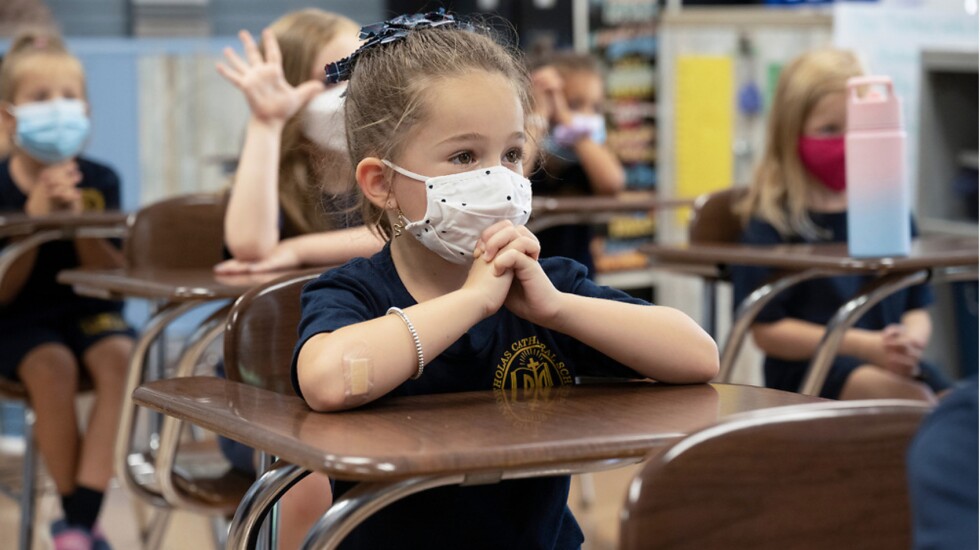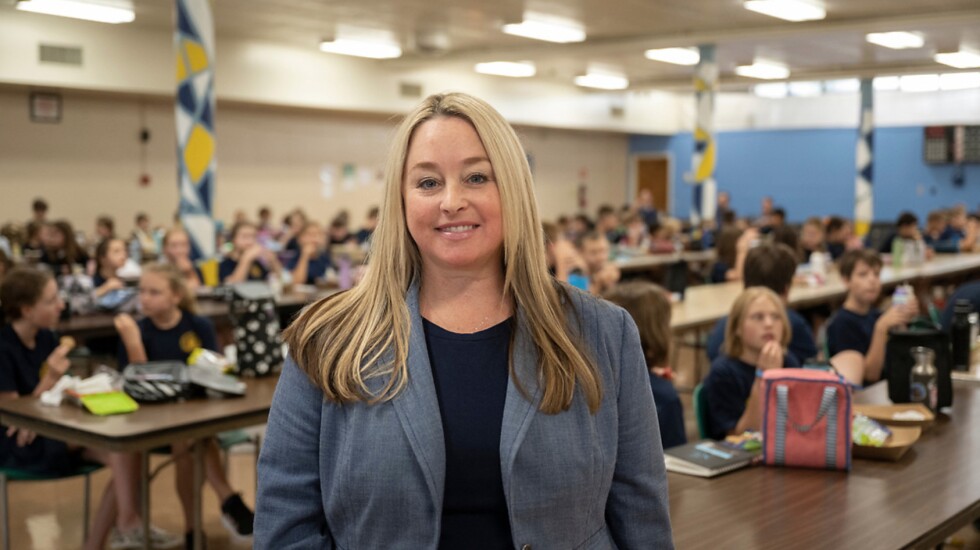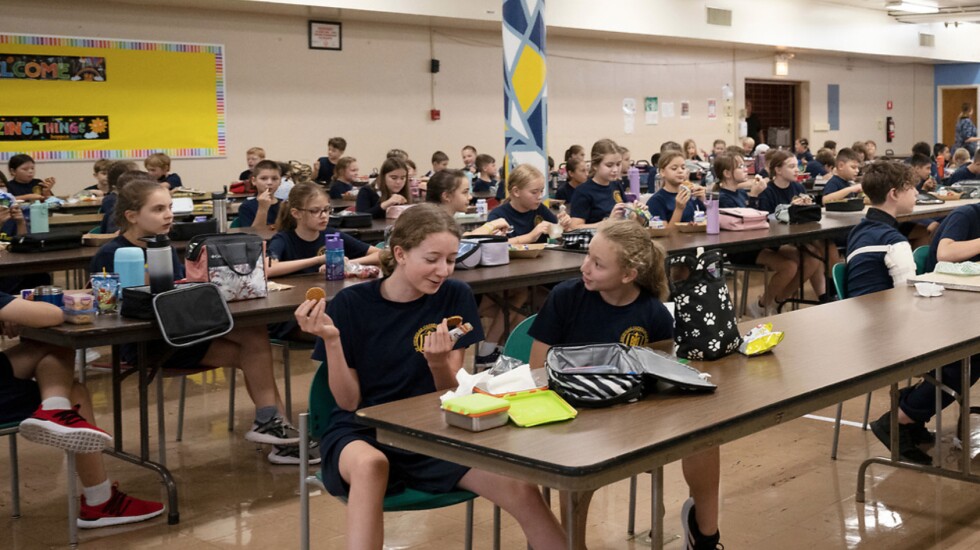
It’s gym day at St. Nicholas Cathedral School in Ukrainian Village, and preschoolers are doing arm lifts in the auditorium.
Their gym teacher for the day is Oksana Vasylenko. The young mother arrived in Chicago earlier this year from Ukraine with her 3-year-old son Sasha. He’s in the class and periodically runs up to hug her leg.
A lot of the students don’t speak English. So Vasylenko jumps between English and Ukrainian.
St. Nicholas has long been home to mostly Ukrainian American families, with a handful of families coming directly from Ukraine each year.
Since the Russian invasion in February, the school has become a hub for families who come to America seeking refuge. Half a year later, Ukrainian refugees make up one-third of the school’s student body. The school has helped 75 students and their families, with about 65 students enrolled this fall.

Many of the parents from Ukraine arrived with next to nothing. So the school is offering far more than an education. For instance, it’s letting Sasha study for free and has given him clothes, food and school supplies.
It also helped Vasylenko find an apartment.
She worked as a human resources specialist in Ukraine. Once her work permit comes in the mail, Vasylenko said she will work again. Then, she can start paying her son’s tuition.
“I’m volunteering because the school has really helped me and my son,” Vasylenko said.

The school’s efforts to help have helped make families like Vasylenko’s feel more comfortable in the new school year.
But, as the war drags on, so does their anxiety.
“The longer they stay in Chicago, they feel torn away from their country,” said Anna Cirilli, St. Nicholas’ principal. “It makes that reality of being able to go back home so much more distant. And that has led to a lot of anxiety.”

Strolling through a school corridor, Cirilli points to student drawings of tanks and plumes of smoke. She said it was helpful to have an art class last school year because “it really helps students illustrate their emotions.”
There was a kindergarten student who drew pictures all in black when he first arrived. By the end of the school year, he started drawing pictures in color again.
Absorbing so many families has been stressful for St. Nicholas, too. The school received a lot of donations earlier this year to help its students. As the rush to help with the war effort has waned, so has the money. Now, St. Nicholas is grappling with how to help man of the new students’ families financially without hurting the school.
Tuition at the school ranges from $6,800 to $7,700.
“Multiply that by 65,” Cirilli said. “It’s impacting the entire community because already we’re an inner-city, Catholic school with roughly 60% low-income [students]. We can’t forget about those students.”
Since the war started, the number of new students has fluctuated. Some of their families have moved to the suburbs. Others returned to Ukraine or nearby European countries. Some graduated and moved on to high school.
St. Nicholas also has had to turn away families as some grade levels filled up. Cirilli said she doesn’t have the heart to say no to them. She asks members of her office staff to do it for her.
“It’s hard to look someone in the face and say we don’t have room,” Cirilli said. “To see someone coming from so far away, with such need, it’s heartbreaking.”

The first arrivals, who came directly to the United States, were able to fit in more quickly, middle school math teacher Monica Idec said.
“After a while, we started getting students who had country-hopped, had gone to different countries and then ended up with us,” Idec said. “You could tell that they were traumatized by those experiences.”
It took a few weeks for the shock of those moves to begin to fade and for those kids to begin opening up.
“After that, I think they started realizing like, ‘Hey, I’m safe. I’m OK, I can be a kid again,’ ” Idec said.
Most of the new students from Ukraine don’t speak English. And most of the teachers at St. Nicholas don’t speak Ukrainian.
Still, Idec was amazed by how her bilingual students stepped in to help.
“They just took those new kids under their wing,” she said. “They welcomed them, helped them. They were willing to do anything to make them feel comfortable.”
Cirlli said the school hired additional teachers and a bilingual assistant who helps mostly with the primary classes. The school also organized an English boot camp over the summer to help new students acclimate.
Teachers say kids in different age groups are responding differently. Younger children, who don’t understand what war is, have had an easier time than older kids, who can hold onto stress longer and might have a hard time expressing their feelings.
With time, the kids are picking up the language. Like Sasha, who now speaks a mix of Ukrainian, Russian and English. During a break between gym classes, Vasylenko jokes that he can ask for water in all three languages.
Vasylenko said it wasn’t easy for her when she first arrived. A large majority of Ukrainian Americans in Chicago come from western parts of Ukraine, and many already had family waiting for them when they arrived in the city. But Vasylenko comes from Kremenchuk in central Ukraine. Like many refugees from central and eastern Ukraine, she didn’t have any relatives to turn to in America.
It wasn’t easy for Sasha, either.
“In the beginning, he had tantrums, nightmares,” Vasylenko said. “He didn’t eat well.”
But she said he has adjusted to their new home and to the fact that his father is now just an image on a phone screen. She hasn’t told Sasha his dad is on the frontlines, clearing mines.
“I’m scared that I can wake up one morning, and he might not pick up the phone,” she said, voice quavering.
As students start pouring in to the auditorium again, she wipes a tear. And she gets up to teach the next class.







